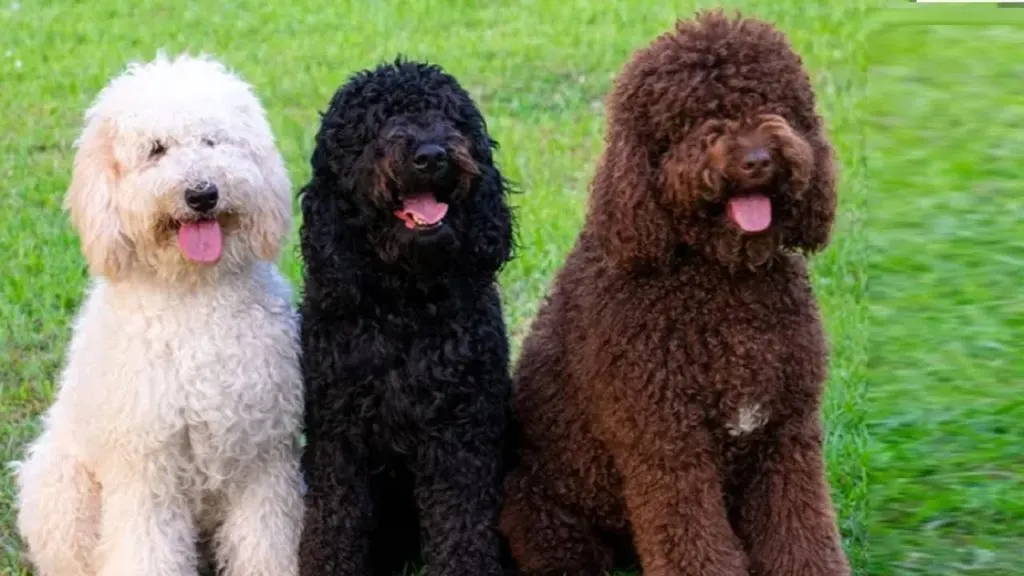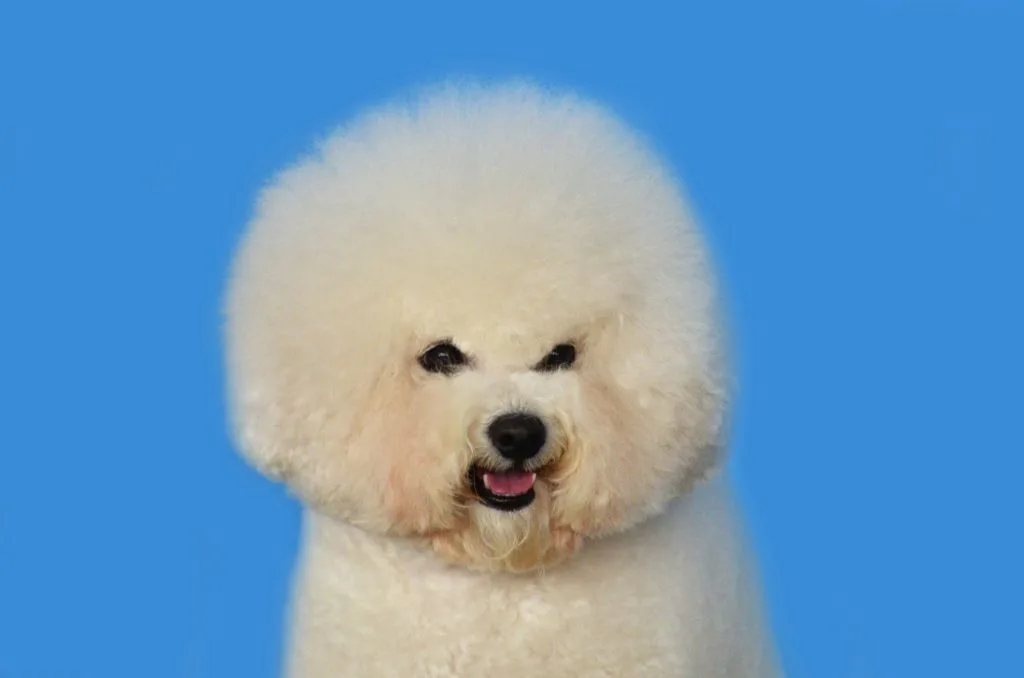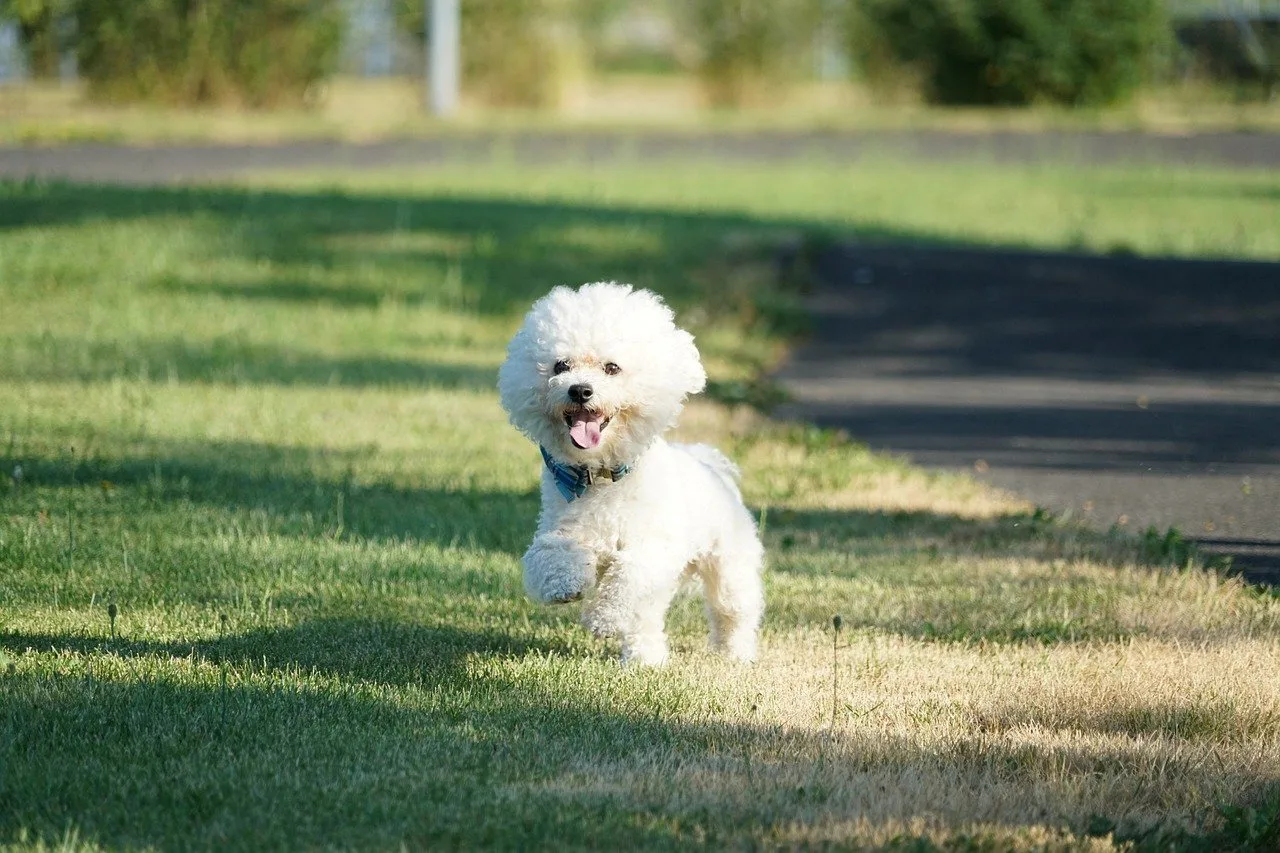There are many dog breeds that make good family pets, Golden retrievers, Labrador retrievers, Poodles. But, there is one breed that stands out the most the Bichon Frise.
If you wonder why then I have only one answer. These dogs might be small, but they have just about every quality you can wish for in a good family dog.
Firstly, they don’t need much space, they will equally thrive in a small apartment and a big home. Secondly, this breed is smart and easy to train, so you won’t have a hard time with training and socialization. Lastly, they don’t shed much, so they are the perfect pick for people with allergies. In addition to all of that, they are adorable and have great personalities and temperaments. So, if these qualities don’t make a perfect family dog, then I don’t know what will!
Of course, we’ll talk in more detail about all the traits of this breed, but you can also read about Bichon Frise mixes:
Bichon Frise – What to know
We don’t really know where the Bichon Frise comes from, their origins are unknown. Many people believe they descended from the Barbet. This was a medium-sized dog with wooly coat that can be white, black or brown.

But, the Bichon Frise isn’t the only descendand from this breed, the Bolgnese, the Coton de Tulear, the Havanese, and the Maltese might be too. They all originated in the Mediterranean and look very similar.
What They Look Like
At first glance, the Bichon Frisé, which by the way is called “Bichon à poil Frisé” in French, looks like a fluffy cotton ball on four legs. This dog breed weighs between 12 and 18 pounds, while they are between 9.5 to 11.5 inches tall.
Their coat is always white and can be up to 4 inches long and, according to the breed standard, should be reminiscent of the Mongolian goat. It is silky and thin and the curls make it look very soft.
| Hypoallergenic: | Yes |
| Life span: | 12 – 15 years |
| Height: | 9 to 11 inches |
| Weight: | Between 12 and 18 pounds |
| Color: | Only white |
| Coat: | Medium length, silky texture with corkscrew curls |
| Temperament: | Playful, Cheerful, Affectionate, Feisty, Sensitive, Gentle |
Bichon Frise has a double coat which is a combination of a dense and soft undercoat and coarse outercoat. Bichon’s coat gives the dog a puffy appearance.
They have dark, adorable eyes and floppy ears covered with curls. Their tail is bent over the back, but not curled up.
Did you know that their curls are where the Bichon Frise got their name from? Bichon Frisé translated means “lap dog with curly hair”.
Personality & Temperament
A Bichon Frisé knows how to win you over with its charm and big personality. This is a lively, active dog who likes to be with you everywhere. Their cheerful nature is infectious and by just looking at them you can’t help by smile. That’s exactly how they can easily wrap most people around their little paws. They also enjoy being caressed and your lap is their favorite place to be.
These dogs are uncomplicated companions, they aren’t hectic and get along well with anyone including other dogs. They are also generally friendly to strangers. But, you should know that they tend to be alert, but they are never aggressive and aren’t big barkers.

Generally speaking the Bichon Frise is a happy, curious, playful, and cheerful dog that loves attention. But you shouldn’t underestimate the little one. On the one hand, he has a lot of energy and wants to be active. He is usually playful well into old age. On the other hand, he tends to be stubborn and is not easy to train.
He is also very sensitive and does not want one thing above all: to be alone. When he’s apart from his people, he suffers, even if it’s only for a few hours.
These dogs often suffer from separation anxiety if left alone for a considerable period. Therefore, if you are away from home for longer periods of the day, Bichon Frise is not a dog for you.
We always stress that early socialization and exposure to different situations, sounds, people, dogs, and other animals are the key to a well-behaved and well-rounded dog. By socializing your dog early, you’re making sure they won’t lash out when faced with something unfamiliar.
Health & Care
If you want a Bichon Frisé, you have to be aware that their grooming is very time-consuming. They are not low-maintenance dogs. Despite being hypoallergenic you have brush them almost every day. Otherwise, their fur could become matted and they could develop skin problems. Grooming also includes shaving their coat from time to time or having it sheared.
While there are a few diseases that are common in this breed, they are usually very healthy, long-lived dogs. The life expectancy of a Bichon Frise is between 14 and 15 years.
Did you know that the oldest Bichon Frisé was 19 years old?
So, as already mentioned the Bichon Frise is a generally healthy dog, but sadly there are a number of health problems this breed is susceptible to, for example allergies and vaccination sensitivity. The most common health issues in Bichons are:
- Hip Dysplasia – is a hereditary condition that happens during the growth stage in dogs. When a dog had hip dysplasia their hip joint is loosening, which causes dysfunction and pain. As your dog grows, the cartilage and bone of the hip begin to wear down which causes arthritis, muscle atrophy, and limited mobility.
- Cataracts – it’s a cloudy film that sets into your dog’s eye’s lens and keeps light from entering.
- Bladder issues – there are many signs and symptoms of bladder issues in dogs. For example, difficulty urinating, frequent attempts to urinate and weak or nonexistent urine when they pee. Besiedes this, your dog could have a distended abdomen and be in pain. Sometimes they can even lose their appetite or vomit.
- Patellar Luxation – luxating means ‘out of place’ or ‘dislocated’, so this means that a luxating patella is a kneecap that moves out of its normal location. And you’ve probably guessed it, it’s a very painful condition.
Exercising your Bichon Frise
Anyone who thinks a lap dog would just lie around lazily on the sofa all day, will be taught better by the Bichon Frisé. These little dogs are real power packs. They love long walks and little adventures like trips to the park or a hike with their family.
They also enjoy dog sports such as agility training for small dogs. But they’ll also be happy if you play fetch with them in the garden or play other games like search games. So, make sure you plan enough time every day for fun and play with your Bichon Frisé.
Bichon Frise, like any other dog breed, needs to have some degree of physical activity to stay healthy. Generally, daily walks combined with some playtime are enough to keep your dog healthy and happy.
But, don’t get us wrong. You won’t have to play with them all day long. Just make sure they get some activity during the day.
Grooming & Nutrition
Bichons are high-maintenance dogs. Daily brushing is required to keep their coat healthy and in top shape. Since Bichon’s coat is white, you will also need to bathe him regularly to remove dirt and keep a clean look. Trim the dog’s nails as needed and brush his teeth daily to prevent bad breath and gum disease.
Also, regularly check Bichon’s ears for the sign of yeast or bacterial infection.
Most Bichon Frise owners hire a professional groomer to keep their dog’s great look. So, if you don’t have time, knowledge, or will to groom your dog, a professional groomer is always an option.
A well-balanced diet and high-quality food appropriate to your dog’s age, size and activity level are crucial for the good health of your dog. Therefore, buy food that your dog likes and stick with it. Also, make sure to regularly check the dog’s weight and portion his meals to prevent overeating and obesity.
Bichons are easy to train in all aspects, except one – they are notoriously hard to housebreak. On the other hand, they are intelligent dogs and quick learners and they respond well to training. For the best and fastest results, use positive reinforcement methods and avoid harsh corrections.

